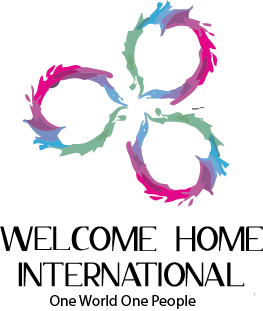UNROOT - Unrooting Violence: tackling social norms for the prevention of gender-based violence
Project number: 2021-1-NL01-KA220-ADU-000026492
The UNROOT project starts from the fact that gender-based violence (GBV) affects women at all levels of society and across Europe, regardless of age, education, income, social position or country of origin/residence. Moreover, the situation is indeed far worse in cases where women have no access to support structures, such as in rural areas. Indicatively, the 2020 report from GREVIO shows the absence of effective measures addressing the needs of women from vulnerable groups, such as women from rural areas who frequently face specific barriers. In the case of the primary prevention of GBV is highly important to develop and implement projects that reach out to those communities and support both women and men with fewer access opportunities to reduce harmful traditional practices, behaviors, and customs contributing to GBV; create an open dialogue with community members about GBV issues and gender stereotypes; and design bystander intervention strategies to go deeper to the stereotypes and prejudices that pertain GBV and empower people to find their own voice beyond social norms. The carefully designed project results aim to first and foremost create inclusive learning and training environments where all target groups will feel safe to voice their concerns regarding GBV and take initiative for the prevention of GBV at the individual, community, societal, and systemic level.
Objectives: What do you want to achieve by implementing the project?
UNROOT has been designed to intervene at the individual, collective and societal level in rural communities in order to: -Sensitize and advocate for raising awareness on various aspects of GBV and their negative consequences for women, men, families, and the community at large; -Strengthen participants’ knowledge through training and support; -Help participants to reduce harmful traditional practices, behaviors, and customs contributing to GBV; -Create an open dialogue with community members about GBV issues and gender stereotypes; -Design bystander intervention strategies to go deeper to the stereotypes and prejudices that pertain GBV and empower people to find their own voice beyond social norms; -Bring together stakeholders at local, regional, and national level through advocacy practices and exploration of policy solutions. Implementation: What activities are you going to implement? The project includes a Transnational Training Activity (C1) to enhance the competences of adult support workers and trainers that work closely with the topic of GBV and support women in rural and non-urban localities, a diverse range of multiplier activities (including local events and a transnational final conference) as well as smaller scale activities such as research, focus groups, interviews, policy webinars and a large-scale awareness-raising training programme, informing the project results and implementation. In addition to the above, the project will also implement a range of management activities, such as online and face-to-face dissemination activities, quality assurance and impact assessment of project results and training schemes, branding strategy, and a sustainability plan.
Results: What project results and other outcomes do you expect your project to have?
The outcomes of the project will be increased understanding of the various aspects of GBV and their negative consequences for women, men, families, and the community at large, strengthened women and men’s knowledge on GBV through training and support, enhanced collaboration between rural communities across Europe in order to effectively strategize for the prevention of GBV, support of adult support workers and trainers who primarily work with adults in small communities through the developed methodology, networking and material that will also contribute to the project’s sustainability. UNROOT sets a clear methodological and strategical path for developing resources for the primary prevention of GBV. The project will produce the following results: a) The UNROOT preparatory phase that consists of the identification of rural communities/localities that will closely collaborate with participating organisations during the project implementation; the setting up of sharing and support system in the selected rural communities; and the development of guidelines for collecting information from above target groups regarding current practices, gaps and challenges. b) A training manual will be developed that includes definitions of GBV; key aspects and analyses of social norms and GBV; methodological approaches for educating on GBV; the role of media; criteria for developing training paths in non-formal settings; approaches and methodologies for active bystander intervention for adults who live in rural communities. The training manual will give access to and facilitate the delivery of the UNROOT awareness-raising training programme (PR2), a 60-hour long, highly focused and specialized awareness-raising training on the primary prevention of GBV to women and men with different social backgrounds living in non-urban, rural areas. c) An advocacy campaign (PR3), involving the monitoring of key policy processes at national level and informing policy and decision makers and other stakeholders about pilot activities and possible changes at systemic level through active participation in policy meetings and processes.
